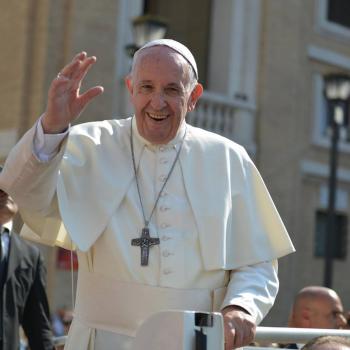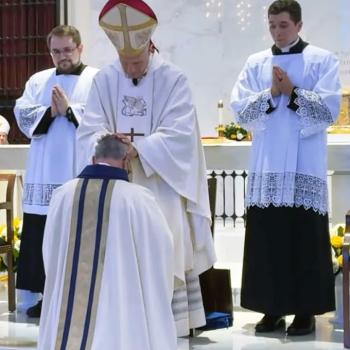Listen to the summary very carefully:
You shall set it (the basket of the first fruits) down before YHWH your God and bow down before YHWH your God. Then you, together with the Levites and the aliens who reside among you, shall celebrate with all the bounty that YHWH your God has given to you and to your house (Dt. 26:10-11).
Proper thanksgiving always includes those who cannot easily fend for themselves. First, there are the Levites, landless holy ones, who rely on the gifts of Israelites for their very survival. And second, there are the "aliens"—the strangers, the immigrants, who have come to Israel for safety, for sustenance, possibly driven there by war or famine. They have come to stay for a brief time or for a long time, but whether they plan to stay for a week or for the remainder of their lives, part of appropriate thanksgiving for God's gifts of land and its bounty is to share that bounty with those immigrants in their midst.
Deuteronomy 26:12 reinforces the requirement. "When you have finished paying all the tithe of your produce in the third year (the year of the tithe), giving it to the Levites, the aliens, the orphans, and the widows, so that they may eat their fill, within your towns . . ." Full thanksgiving means that all must be full. If there are hungry among the Israelites, the complete intentions of God's gifts have been thwarted, and thanksgiving is not complete. Thus, Ash Wednesday's invitation to Amos to join the commemoration is repeated in Deuteronomy; the final word of thanksgiving is justice for all.
I trust you can see the implications of this reading for our Lenten work this and every year. Fasting and mourning must be followed by celebrations for God's rich gifts to us, celebrations marked by sharing our bounty with those who have difficulties providing for themselves, especially the immigrants among us.
The first word we say to the immigrants among us is not, "Are you legal?" Or "What laws have you broken to be here?" Our first words must be instead, "Come. Join us in the celebrations of God's rich gifts to us." Only then will we be on the Lenten journey to which God has called us.





